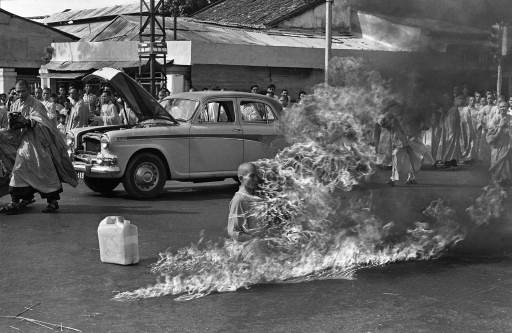His Holiness the 14th Dalai Lama recently celebrated his 80th birthday!
I've read that he is very conscious of the fact that after his death, there will be much turmoil, and it's something he thinks about often. "When I pass away, when I die, of course a setback. Very serious setback," he said in an interview. I have read/heard, though I cannot at present time point to the source (I can research further later and add citation, if necessary), that he is aware that many, perhaps thousands or tens of thousands, will commit suicide after he dies.
I believe the Dalai Lama has voiced opposition to suiciding for protests, that it violates Buddhist ethics—
And he is quoted as saying:
"Some people commit suicide; they seem to think that there is suffering simply because there is the human life, and that by cutting off the life there will be nothing... But, according to the Buddhist viewpoint, that's not the case; your consciousness will continue. Even if you take your own life, this life, you will have to take another body that again will be the basis of suffering. If you really want to get rid of all your suffering, all the difficulties you experience in your life, you have to get rid of the fundamental cause (greed, hatred and delusion) that gives rise to the aggregates that are the basis of all suffering. Killing yourself isn't going to solve your problems."
—so my question is: If in fact many plan to suicide when he dies, why will they act in a way that is antithetical to their teachings, specifically the beliefs of their religious leader? It seems to this Westerner a totally illogical reaction. My perception, not criticism or judgment, is that it's especially irrational considering Dalai Lama's objection to suicide, Buddha notwithstanding: "If one knows how to treasure oneself, one should protect oneself well."—The Buddha (Dhammapada)
Can light be shed on this question? If I have been misled about the intentions of many followers to terminate their existence as a result of his passing, then my question should be deleted. Also, this is not the same question as "What are the consequences of the 14th Dalai Lama being the last one?" because it's not about the order of things but rather about the contradiction of ethics and action which I am unable to reconcile, hence the question, which I realize hinges completely on the report of planned suicides following his death, and I'm currently scouring for sources (I think it was an NPR radio program, perhaps).
